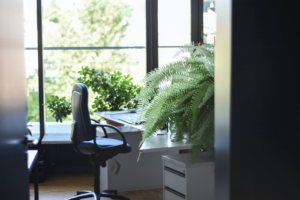If you’ve ever noticed unsightly, white or brownish stains on your windows, chances are you’re dealing with hard water stains. These pesky blemishes not only ruin the appearance of your windows, but they can also be difficult to remove and prevent. In this article, we’ll dive into the world of hard water stains, including what they are, how to prevent them, and most importantly, how to get rid of them once and for all.
What are Hard Water Stains?
Hard water stains, also known as water spots or mineral deposits, are caused by the presence of excess minerals in your water supply. These minerals, such as calcium and magnesium, can build up on surfaces over time, leaving behind unsightly stains. When it comes to windows, hard water stains can occur when water droplets containing these minerals dry on the glass. As the water evaporates, the minerals are left behind, creating a noticeable residue.
Prevention is Key
Preventing hard water stains is much easier than trying to remove them once they’ve formed. Here are a few steps you can take to avoid hard water stains on your windows:
- Use a water softener: If you have particularly hard water, consider installing a water softener in your home. This device removes excess minerals from your water supply, reducing the likelihood of hard water stains forming on your windows and other surfaces.
- Clean your windows regularly: Regular window cleaning can help prevent hard water stains from forming in the first place. By removing dirt and grime from your windows, you can reduce the chances of mineral deposits accumulating on the surface.
- Avoid washing your windows on a hot, sunny day: When the sun is shining brightly, the heat can cause water to evaporate too quickly, leaving behind mineral deposits on your windows. To avoid this, try to wash your windows on a cloudy day or in the early morning or late afternoon when the sun isn’t as intense.
- Avoid spraying your windows down with the hose: If you spray your windows down with the hose and let them sit to dry, the water will evaporate and minerals will be left behind, staining the windows.
- Avoid positioning your sprinkler heads near windows: Sprinkler systems are one of the main causes of hard water stains on exterior windows. Be sure to position your sprinkler heads away from windows to prevent the water from causing stains.
Removing hard water stains
If you’re dealing with hard water stains on your windows, don’t despair. There are several effective methods for removing these stains and getting your windows looking crystal clear again. Here are a few options to try:
- Use a mixture of baking soda and vinegar: Another natural option for removing hard water stains is to use a mixture of baking soda and vinegar. Simply mix equal parts baking soda and vinegar in a bowl, then apply the mixture to the stain using a sponge or cloth. Let it sit for a few hours before scrubbing the stain with a microfiber cloth. This method may take a bit of elbow grease, but it can be effective at removing hard water stains.
- Use a commercial hard water stain remover: If vinegar doesn’t work, you can also try using a commercial hard water stain remover as we find it’s the most reliable method. These products are specifically designed to remove mineral deposits and other hard water stains from your windows. Just be sure to follow the instructions carefully. Our favourite is the insert chemical.
- Use a mixture of lemon juice and salt: If you don’t have access to a commercial hard water stain remover, you can also try using a mixture of lemon juice and salt. Simply combine equal parts lemon juice and salt in a bowl, then apply the mixture to the stain using a sponge or cloth. Let it sit for a few hours before scrubbing the stain with a microfiber cloth. This method may take a bit longer to work, but it can be effective at removing stubborn hard water stains.
- Use a pumice stone: Pumice stones are a natural and abrasive material that can be used to scrub away hard water stains. Simply wet the pumice stone and gently scrub the stain until it disappears. Be sure to use caution when using a pumice stone, as it can scratch the surface of your windows if used too aggressively.
No matter which method you choose, be sure to test a small, inconspicuous area of your window before applying any cleaning solution to the entire surface. Some materials may be sensitive to certain cleaners, so it’s always best to err on the side of caution.
In conclusion, hard water stains can be a frustrating and unsightly problem for homeowners. However, by following the prevention tips outlined above and using the right cleaning methods, you can effectively remove hard water stains and keep your windows looking crystal clear.

